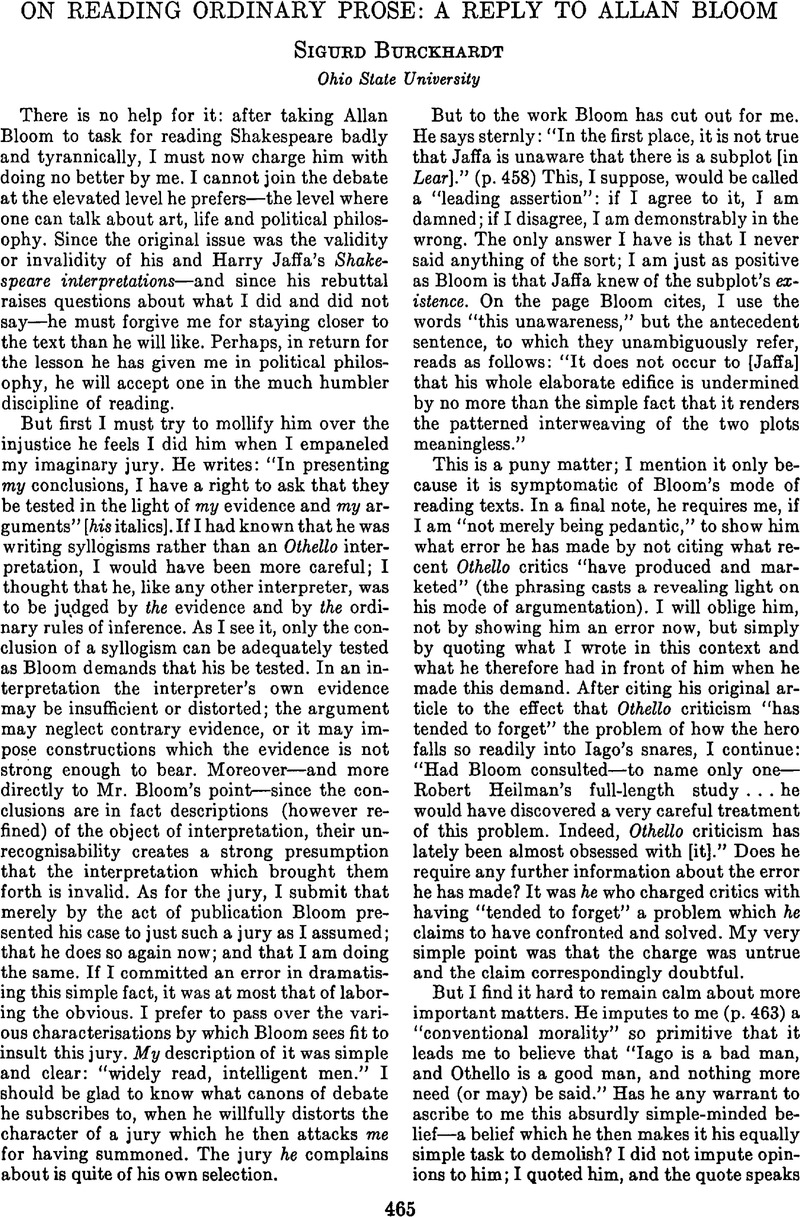Published online by Cambridge University Press: 01 August 2014

1 Of many more points that should be answered, a sample must suffice:
(a) Bloom makes it appear that my allusion to “brinkmanship” refers to the testing of Lear the man, which, he says (and I would not object) is “the very essence of tragedy.” The fact is that both Jaffa and I are talking, in this context, about the political scheme which Jaffa imputes to Lear. The distinction between scheme and schemer is vital. If Secretary Dulles's policies had issued in a nuclear war, that failure by itself would still have been a far cry from making a tragic hero of him; only the quality of his response could have done so. Anthony Eden failed at Suez; from his memoirs I should judge that the experience fell somewhat short of makinGA Lear of him.
(b) Though Bloom charges me with carelessness for going, in my critique, beyond the confines of Lear I.i. (cf. above), he himself, within two pages of making this charge, writes: “All Jaffa was trying to do was to give some clear and distinct notion of what such words as ‘self-knowledge’ and ‘justice’ mean within the universe of King Lear” [italics mine]. And not even that is correct.
(c) Throughout his rebuttal, Bloom tries to create the impression that I considered his and Jaffa's articles a trespass upon the preserves of professional Shakespeareans. A reading of the first paragraph of my critique will show that, on the contrary, I should welcome contributions from political theorists to the understanding of Shakespeare. But I cannot fairly be expected to welcome, for the sake of interdisciplinary exchange, gifts of such doubtful value as I hold these articles to have.
Comments
No Comments have been published for this article.